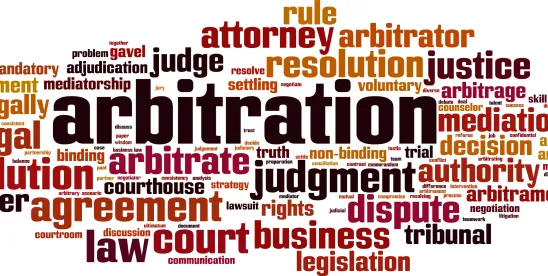On May 8, the Second Circuit held that the New York Convention on the Recognition and Enforcement of Foreign Arbitral Awards trumps a Louisiana state law barring arbitration of insurance disputes in a pair of cases, Certain Underwriters at Lloyds, London et al. v. 3131 Veterans Blvd. LLC and Certain Underwriters at Lloyds, London et al. v. Mpire Properties LLC. In doing so the Second Circuit joined the First and Ninth circuits in ruling that the New York Convention’s provision on the enforcement of arbitration agreements is “self-executing” and, thus, preempts state law consistent with the Supreme Court’s decision in Medellín v. Texas.
The underlying dispute involved damage to commercial properties in Louisiana after Hurricane Ida hit the state in 2021. The insurance policies at issue provided for arbitration seated in New York applying New York law. After settlement discussions failed, the insureds filed suit in Louisiana, while the insurers moved to compel arbitration in the Southern District of New York.
Louisiana’s Insurance Code and subsequent jurisprudence bars enforcement of arbitration clauses in insurance policies. The Federal McCarran-Ferguson Act says that state insurance law controls over conflicting “acts of Congress.” Prior to Medellín, the Second Circuit treated federal treaty law, such as the New York Convention, as “acts of Congress” only if it required legislative action to be enforced, i.e., it is not self-executing. Applying these pre-Medellín rules, the district court found that the New York Convention was not self-executing and that Louisiana’s bar on enforcement of arbitration in insurance disputes reverse-preempted the New York Convention and the Federal Arbitration Act, preventing arbitration of the underlying dispute.
However, in Medellín, the Supreme Court established a different test for determining whether a treaty provision should be considered self-executing. “The Supreme Court did not confine its analysis to the narrow question of whether Congress enacted legislation purporting to implement the treaty at issue[.]” Rather the Court implemented a multi-factor test applying to individual provisions of the treaty to determine whether that provision was intended to take immediate effect in domestic courts.
Applying the Medellín factors to the relevant New York Convention provision, the Second Circuit found that Article II, Section 3 of the Convention – the provision related to the enforcement of arbitration agreements – is self-executing and not subject to statutory preemption rules like that in the McCarran-Ferguson Act.
This Court’s holding does not extend to purely domestic arbitrations, but parties to arbitration agreements with a foreign element can no longer escape arbitration of commercial disputes on statutory preemption grounds.




 />i
/>i
